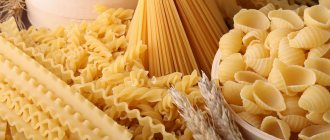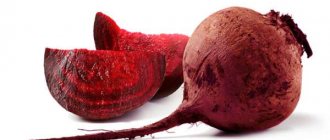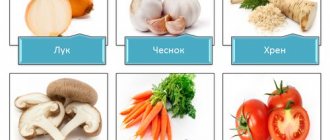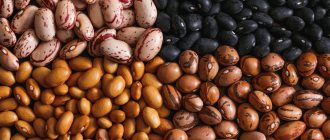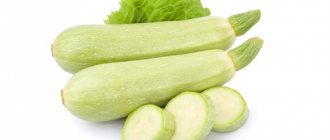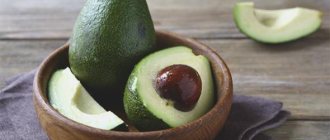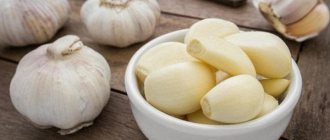When people simply talk about cabbage, they usually mean the white cabbage that everyone knows from childhood. The vegetable is truly super popular - cabbage is present not only on the tables of various peoples of the world, but also in fairy tales, riddles, and myths. Such high popularity is explained by the fact that it has a whole host of advantages - tasty, healthy. The juice and leaves are actively used in folk medicine to treat a wide variety of diseases.
White cabbage is not the only member of the cabbage family. In addition to it, other representatives of the family are quite famous, although they are inferior in polarity to white cabbage - Peking, cauliflower, broccoli. Sometimes sea kale is included in this family, although this plant is not kale at all, but a sea brown algae called kelp.
In principle, any cabbage, including sea cabbage, when properly prepared, can decorate the table, both everyday and festive. However, despite all the advantages, not all people can include it in their diet. For example, there are restrictions for diseases of the intestines and stomach, in particular gastritis.
The stomach is normal and affected by gastritis
Can cabbage be eaten fresh for gastritis?
Gastroenterologists advise eating cabbage that has undergone at least minimal heat treatment. For example, sauerkraut is good, but fresh cabbage is no longer good. A fermented product does not lose nutrients; a boiled product is beneficial only in case of relapses.
In any case, it is important to monitor your own feelings. Even if the product is prepared correctly, individual reactions are possible. So if you experience discomfort, it is better to immediately exclude the dish from your diet.
If cabbage for gastritis with high acidity is prohibited during exacerbations, then during remission it is quite acceptable. Just eat it in small portions. Against the background of reduced acidity, the product increases appetite.
The stewed product is also good in its own way. After all, it retains almost all useful substances. Both with high and low acidity levels, stewed vegetables have a healing effect. The functioning of the digestive system improves, the load is reduced. And inflammation goes away much faster. And if you regularly eat such cabbage during the remission stage, it becomes an excellent preventive measure.
For various pathologies, it is permissible to eat both stewed and pickled Beijing, Brussels sprouts, and even cauliflower. The same can be said about broccoli and cabbage. It is much more important to cook them correctly.
Recipes
Dietary nutrition for patients with gastritis does not involve the use of fried ingredients, and the technology of culinary processing of vegetables must be strictly observed. Products must be fresh, well washed and cleared of hard peels and leaves.
Dietary version of the classic recipe
The recipe describes how to prepare white cabbage, but you can replace it with Brussels sprouts or broccoli if desired (they require less cooking time):
- Before stewing, finely chop 1 small head of cabbage.
- Sauté finely chopped 1 onion and 1 carrot with the addition of 1 tbsp. l. vegetable oil. When the vegetables become soft, add 2 chopped tomatoes to them. You can use tomato paste prepared without preservatives.
- Place all vegetables in a saucepan, stir, add 1 glass of hot water and cover with a lid.
- After boiling, reduce heat and simmer, stirring occasionally, for about 40 minutes.
- Before serving, add salt and herbs in small quantities.
With chicken breast
The dish becomes more satisfying with the addition of chicken. The dish is prepared from the same vegetable ingredients plus 0.5 kg of chicken breast fillet. The cooking technology is as follows:
- Shred the cabbage.
- Cut the meat into small pieces.
- Add meat to sautéed vegetables (onions and carrots), and after 5 minutes add tomatoes. Simmer until soft, avoiding the formation of a crispy crust.
- Place all ingredients in a saucepan, add water and simmer for about 40 minutes over low heat.
- Salt and herbs are added before serving.
Stewed cabbage in milk
You can prepare a dish from any type of cabbage, but cauliflower (even frozen) goes better with milk than others.
To prepare the dish you need to prepare:
- 0.5 kg cauliflower;
- 0.5 cups of low-fat milk;
- spices (salt, nutmeg).
Boil the cabbage until half cooked for 5-8 minutes, pour the broth into a separate bowl, and grind the vegetable in a blender. Pour 0.5 cups of broth and milk into the pan with the resulting puree and bring to a boil. Add spices. If desired, you can add butter to the dish (it must be natural).
In what form should I eat different types of cabbage?
Below we will consider popular types of cabbage, which are most often sold in markets and supermarkets in our country. They are also grown in home gardens. We will tell you in what form it is best to prepare and eat them if your loved ones are diagnosed with gastritis.
- Cauliflower. An incredibly healthy vegetable for any gastrointestinal disease. When stewed, it saturates with microelements and contains the above-mentioned vitamin U. When the acidity is low, it is better to drink freshly squeezed juice or consume it boiled.
- Chinese cabbage. There are cases where fresh cabbage even provoked gastritis. She was from Beijing. True, it was prepared with the addition of vinegar and spices. We advise you not to experiment, but to limit yourself to eating stewed “Peking”. There will be no negative consequences for the body, and all necessary substances will be preserved. Always listen to your body. If you feel discomfort in your stomach even after stewing Chinese cabbage, you will have to remove it from your diet.
- Is it possible to eat cabbage with gastritis when it comes to broccoli? Undoubtedly. It contains no less vitamins than cabbage cabbage. However, there is also magnesium, which takes an active part in metabolism. Carotene, which is part of the vegetable, blocks “bad” radicals that settle on the walls of the stomach. With daily intake of stewed or boiled broccoli, improvement occurs already on the third day.
- Sea kale is useful for erosive gastritis because it contains a lot of zinc. But you can eat it only between relapses. As soon as an exacerbation occurs, algae is excluded from the diet. Because they can swell in the stomach, damage the already inflamed mucous membrane, and cause irritation. Sea kale has proven itself well for constipation - it activates peristalsis. With regular use, appetite increases.
How to choose the right finished product on the market
In order not to bother yourself, you can purchase finished products at the market or supermarket. Since there are many recipes, there is a possibility that the product will not fully correspond to the buyer’s taste preferences. But the main thing is that the basis is of high quality:
- the correct composition does not contain vinegar or citric acid;
- the brine should be cloudy, slightly slimy, and viscous;
- the color of the vegetable should be white-golden, possibly with a pinkish tint;
- It’s best if the seller offers products from his own garden.
If possible, it is better to try the product. A properly fermented vegetable is crispy, sour and salty, without foreign odors of dampness or mold.
If the cabbage lost its crunchy properties, but remained firm, it was treated with boiling water for quick readiness. This is a sign of an unscrupulous manufacturer.
Cabbage juice, its effect on a sore stomach
For gastritis, fresh cabbage juice has a positive effect on the inflamed walls. It has an astringent effect, becoming a natural sorbent. Numerous studies by nutritionists have shown that with daily consumption of a glass of juice, the secretory function of the diseased organ was restored, and the damaged areas healed. Also, this natural product can relieve heartburn and nausea during acute attacks of the disease.
How to properly prepare cabbage juice? Grind the leaves in a regular meat grinder or blender. And then squeeze out the juice with your hands. Of course, if you have a juicer, use it - you will get a little more juice.
Freshly squeezed juice can be stored in the refrigerator for no more than 2 days. Drink it every day, one glass 30 minutes before meals. If the taste seems a little cloying and unpleasant to you, the drink can be sweetened with carrot juice. But even in this case, consulting a doctor about juice treatment will not hurt.
Beijing
In its raw form, Chinese cabbage is contraindicated for people with gastritis, because its irritating effect on mucous tissue provokes an exacerbation.
Sometimes gastritis occurs when eating such cabbage in combination with overly spicy seasonings, alcohol or vinegar. The Beijing vegetable will provide all the necessary useful components in boiled or stewed form. The vegetable can be added to vegetable stews or soups.
If acidity levels are high, it is better not to include it in the diet. It is also not recommended to combine Chinese cabbage with dairy products, because in such a tandem it causes digestive disorders in patients.
Don't forget about individual intolerance. If after consuming the product you experience painful discomfort, burning or flatulence in the epigastric region, then it is better to avoid eating Chinese cabbage.
Basic cooking rules
So, if you bought cauliflower, you can boil it, stew it, or even fry it with an egg in a small amount of vegetable oil. Fried, raw white cabbage is strictly prohibited - even if the disease has entered the stage of deep remission and has not reminded of itself for a long time.
Cabbage dishes go well with stewed meat. The combination will be especially useful for gastritis, accompanied by severe inflammation.
Sea kale can be taken in powder form if prescribed by a doctor. But this option is not the most delicious. In pickled form, seaweed is quite acceptable. Vegetables with gastrointestinal diseases need to be cooked longer. And before serving, citric acid, hot spices and seasonings are never added to it. The same can be said about sauerkraut. During cooking, do not add much salt and pepper to it.
Possible contraindications
https://youtu.be/ZgTHURVK50A
If you have homemade sauerkraut at home, gastritis in most cases does not prohibit adding it to your diet. But there are contraindications under which the vegetable cannot be consumed in this form:
- pancreatitis;
- dysfunction of the thyroid gland;
- gastric ulcer and 12-p.k.;
- with bleeding from the gastrointestinal tract;
- if you have liver and kidney diseases;
- with enterocolitis with diarrhea.
Why should you eat cabbage if you have gastritis?
Gastritis is an inflammatory process that affects the gastric mucosa. Inflammation can begin due to poor nutrition, excessive consumption of alcohol, and also due to the penetration of Helicobacter pylori bacteria. Patients with gastritis are forced to radically change their diet, because an attack of gastritis is accompanied by severe pain and no one wants to provoke its onset. Now we’ll find out whether cabbage will help or harm gastritis? And how to prepare it correctly to obtain the maximum amount of vitamins.
Stewed
Cabbage prepared by stewing is especially recommended for consumption for hypoacid-type gastritis, as well as for low gastric acidity.
The process of heat treatment by extinguishing protects the mucous membranes of the gastric cavity from the aggressive effects of fiber and its coarse fibers. Stewed vegetables will be an excellent addition to the patient’s diet menu, and the enzymatic substances it contains will help improve digestive processes.
Benefits of cabbage
There are many varieties of vegetables, but the most commonly found on the table is white cabbage. It is high in vitamin C, so it helps strengthen the body's protective functions and reduces the risk of colds. If you have time, we recommend reading a separate article about the beneficial properties of cauliflower.
Cabbage is also good for the stomach: it contains nicotinomide and methylmethionine - components that improve digestion processes and also have a beneficial effect on the condition of the mucous membrane. Under the influence of these substances, wounds that accompany the development of ulcers heal, and intestinal motor activity improves.
Many beneficial substances can be found in cabbage:
Marine
Sea kale or kelp is considered a source of zinc, which is very useful in the treatment of various types of gastritis. But you can eat it only during periods of remission; in moments of relapse, you must refuse to use such a product.
- When exacerbating, the properties of seaweed contribute to an increase in acidity, which is not beneficial for gastritis.
- When such cabbage swells in the stomach cavity, it irritates and damages the mucous tissues, so in case of relapses it is better not to eat it.
- But the product helps prevent the development of constipation, activates intestinal motility, increases appetite and helps cleanse the body of unhealthy substances.
- Also, kelp helps to gently saturate the stomach without overloading the digestive system.
In general, such cabbage is not contraindicated for gastritis, provided that the disease is in remission.
Treatment of gastritis with cabbage juice and cabbage
Treatment of gastritis with cabbage juice is a folk method known since ancient times. Vegetable juice can be used for any form of gastritis , as well as in the acute stage. The drink helps eliminate heartburn and nausea.
It is necessary to highlight the following actions of cabbage juice:
- regenerating – healing of wounds and erosions;
- anti-inflammatory;
- antiallergic;
- painkiller.
It can also be used for low acidity.
Rules for drinking cabbage juice:
- juice cannot be salted ;
- the temperature of the drink should be equal to body temperature;
- drink ½ glass 30 minutes before meals;
- Do not take the product more than 3 times during the day.
Cabbage for gastritis with high acidity
The juice can be consumed for gastritis with high acidity, due to its ability to eliminate the negative effects of hydrochloric acid on the mucous membrane.
This treatment has virtually no contraindications. The limitation of juice consumption is digestive disorders accompanied by constipation, as it increases gas formation.
Is it possible with low acidity?
There is no prohibition on the use of cabbage juice with reduced juice secretion.
What is gastritis of the stomach
Gastritis is inflammation of the gastric mucosa. There are several types: with normal acidity, with increased, decreased or no acidity at all: this condition is called achylia. With gastritis, the stomach glands that produce acid undergo atrophy and are replaced by connective tissue. Therefore, such gastritis is often called atrophic.
According to the course, acute and chronic gastritis are distinguished. Acute can be caused by eating large amounts of fatty or spicy foods, drinking alcohol, or taking certain medications. And also when infected with pathogenic microorganisms or their toxins.
Chronic gastritis can arise from acute gastritis if the rules of its treatment are not followed, or it can develop independently. The main symptoms are epigastric pain of varying intensity, heartburn, belching, and bowel dysfunction.
With prolonged untreated gastritis, there may be weight loss, dizziness, weakness, and vitamin deficiency.
What kind of cabbage can you eat for gastritis and ulcers?
Each variety of cabbage has its own characteristics.
As for the digestive system, its use has the following effects:
- Stimulates metabolic processes;
- Improves the elimination of toxins;
- Stimulates peristalsis;
- Improves appetite;
- Laxative effect.
Speaking about possible dangers, we should emphasize the likelihood of developing an allergic reaction to the product. Therefore, it should be immediately introduced into the diet in small quantities.
Chinese cabbage should not be consumed raw by patients who have gastritis with high acidity. This vegetable contains citric acid, which can complicate the course of inflammation. The product can be stewed or added to soups.
Cauliflower contains easily digestible fiber. It can be added to food for various gastrointestinal pathologies, including gastritis. In the first days of an exacerbation, when the patient is in severe pain, a strict diet must be followed. Then you can introduce boiled cauliflower into your diet.
You can eat cauliflower up to 3 times a week, limiting portions to 200-250 mg. Eating vegetables in larger quantities can lead to the development of gout, allergic reactions, and exacerbation of gastritis with high acidity.
Sauerkraut
It is one of the products whose consumption is recommended for the prevention of gastrointestinal diseases. When preparing cabbage in this form, all vitamins are preserved.
Stewed
Stewed cabbage is easily digested and does not put additional stress on the stomach. It is recommended to be used for gastritis, as it helps eliminate inflammatory processes and accelerates the healing process.
Please note that during an exacerbation, it is better to exclude the product from the menu, as it can lead to increased production of hydrochloric acid. If signs of flatulence are observed after eating stewed cabbage, it should be replaced with boiled cabbage.
Gastritis is a disease that cannot be ignored. It requires a complete overhaul of your lifestyle: proper rest, reducing stress levels and changing your diet. Only with an integrated approach, as well as by following all the specialist’s recommendations, can you improve your well-being and extend the period without attacks.
We also recommend watching a video about the beneficial properties of cabbage.
What in cabbage can negatively affect stomach health?
With gastritis, regardless of the type, the walls of the stomach are inflamed.
Products should have minimal impact on the stomach. Fresh cabbage leaves contain a lot of coarse fibers that irritate the mucous membranes. Thus, 100 g of the white variety of vegetable contains 2 g of dietary fiber, which is a very large indicator. Did you know? Cooks use red cabbage juice as a natural food coloring.
The acids in the vegetable cause the production of gastric juice, which can harm a patient with hyperacid inflammation of the stomach. Particularly dangerous is the fermented product, which contains more acid and stimulates secretion even more.
It is recommended to eat stewed cabbage if you have hypoacid gastritis. Stewed cabbage retains vitamins and nutrients that ease the stomach and improve digestion. An additional plus is that the dish copes with the feeling of hunger, saturating the body.
Substances contained in cabbage:
- B vitamins;
- folic acid;
- vitamin C;
- iodine;
- phosphorus;
- calcium.
Cabbage strengthens the immune system. Regular consumption of the vegetable helps in the fight against colds. Cabbage has a positive effect on mucous epithelial tissue and intestines. Despite its beneficial qualities, cabbage should not be eaten raw if you have gastritis. This is due to the increased content of fiber, which causes symptoms in the stomach:
- severe stomach pain;
- debilitating and persistent heartburn;
- nausea;
- severe vomiting;
- belching.
It is preferable to eat the vegetable stewed, boiled or baked. Stewed cabbage is a rich and healthy dish, combined with a variety of ingredients.
When an acute period of gastritis occurs, eating vegetables is contraindicated; it provokes an increase in the secretion of hydrochloric acid.
For every patient with gastritis, it is absolutely clear that damaged gastric mucosa must be carefully protected. Therefore, in the future they will have to be guided by the following rules.
No to spices
Absolutely all spices, including black pepper, are among those that should not be eaten if you have gastritis. This list is also complemented by all naturally spicy foods, including:
- horseradish,
- garlic,
- fresh onion,
- radish.
Fried foods are very irritating to the stomach and are very difficult to digest, so in order to reduce the load on the digestive system, you will have to completely abandon them. Steamed or boiled food is considered the healthiest. As a last resort, you can sometimes diversify your diet with baked dishes, but only without a crispy crust. Smoked meats are also poorly tolerated by the stomach. Therefore, in order to avoid exacerbation of the disease, consuming them is also not recommended.
"No" to drinks
Gastritis and alcohol are absolutely incompatible with each other. Patients are allowed to drink a little only when the symptoms of the disease completely subside, that is, remission occurs.
Also an absolute taboo during an exacerbation of the disease is: kvass, carbonated drinks and coffee for gastritis. But you should not replace your favorite aromatic coffee with chicory for gastritis and drinks based on it, as it can also cause an exacerbation of the disease.
Is it possible to eat with gastritis?
For stomach pathologies, white cabbage can be eaten in moderation. It should only be eaten boiled, stewed or fermented. Due to its high fiber content, raw vegetables can damage the lining of the stomach or intestines. This can lead to quite painful discomfort and even heartburn. At the same time, it is a valuable repository of useful substances that are necessary for people with digestive problems.
The vegetable contains a large amount of vitamin PP (nicotinic acid) and vitamin U (methylmethionine sulfonium). Methylmethionine sulfonium is able to act on the gastric mucosa, healing damage and restoring protective mucus. Scientists call vitamin PP a medicine. It is able to remove excess cholesterol from the body, cleansing the body of harmful atherosclerotic plaques. Improves blood circulation and promotes the metabolism of nutrients.
For gastritis, it is better to eat cabbage that has been processed in some way.
For gastritis, it is advisable to eat cabbage that has been processed in some way, for example, sauerkraut; fresh cabbage cannot be eaten. This dish is dietary. This method of preparation does not harm many of the beneficial substances found in the vegetable. Boiled will only benefit in case of relapse. If you experience discomfort after eating, you should avoid eating it altogether.
It is not recommended to eat this dish during the acute phase of gastritis. However, during remission, cabbage is an excellent means of prevention. With a reduced level of acidity in the body, sauerkraut helps increase appetite and activates the secretory function of digestive juice. People with high acidity are allowed to eat sauerkraut in small portions and only in remission.
When stewed, it is unique in that it retains almost all the beneficial vitamins. With a reduced level of acidity, it can have a healing effect on the gastrointestinal tract; it is also useful with elevated levels. Improves the functioning of the entire digestive system, helps reduce the load on the muscular work of the digestive system. Relieves various inflammations. In the remission stage it will be an excellent prophylactic against exacerbation of the disease. For pathologies of the digestive system, it is allowed to eat stewed and pickled cauliflower, Beijing, Brussels sprouts, broccoli, white cabbage and other types of cabbage. The main thing is to prepare it correctly.
Beneficial features
The usefulness of cabbage is explained by its unique composition. It contains many useful substances and vitamins that support the immune system and promote effective treatment. When used correctly, cabbage has the following effects for gastritis:
- Relieves inflammation and heals damaged gastric mucosa.
- Stimulates the production of gastric juice.
- Cleanses the body of waste and toxins.
- Prevents constipation.
It contains a large amount of vitamins and minerals, so cabbage has a strengthening effect during gastritis and helps increase the body's resistance to various infections.
Which one can I use?
- Cauliflower is a useful vegetable for diseases of the digestive tract. Light stewed food has a positive effect on blood circulation, saturates the body with protein and amino acids, vitamins and microelements. Contains a lot of vitamin methylmethionine sulfonium. If the acidity level is low, it is prescribed to drink freshly squeezed juice from it. Cauliflower is often consumed boiled.
- Peking - this vegetable is prohibited for those suffering from gastritis in its raw form, since its irritating effect on the mucous walls can lead to an exacerbation. Gastritis can also be caused by cooking cabbage with hot spices, vinegar, or together with drinking alcohol. Chinese cabbage will transfer all the beneficial substances to the body in stewed form without negative consequences. But you should remember that each body is individual, and if you feel the slightest discomfort after eating cabbage, you should stop eating this vegetable.
- The composition of vitamins in broccoli is the same as in white cabbage. But this species additionally stores magnesium. Magnesium is a very useful substance that actively takes part in the body's metabolic processes. Carotene, which is found in vegetables, makes up the mucous membrane of hollow organs. It has a blocking effect on negative radicals that settle on the walls of the gastrointestinal tract, damaging them. A noticeable restoration of the mucous membrane occurs already on the 3rd day after daily consumption of stewed vegetables.
- Marine is a container of zinc, which is recommended by doctors for the treatment of various types of gastritis. However, seaweed should be eaten only during the period between stages of relapse. During an exacerbation of the disease, eating seaweed is prohibited, because its properties contribute to an increase in acid levels and, by swelling in the stomach, it damages and irritates the mucous membrane of the digestive tract. It should be taken for constipation, as it activates intestinal motility. Increases appetite, cleanses the body of harmful substances.
Return to contents
Other folk recipes based on cabbage
In addition to juice, traditional healers suggest using cabbage brine. Naturally, the product is suitable only for those who suffer from low acidity. Brine is rich in beneficial bacteria and fermented nutrients. The folk remedy is so easily digestible that even people with very serious disorders in the functioning of the gastrointestinal tract can drink it.
Making brine is very simple. You need to finely chop white or Chinese cabbage, add clean hot water at the rate of 500 ml of water per 100 grams of chopped leaves. Add a teaspoon of fine sea salt, stir vigorously and leave to ferment for 2-3 days.
Important! Drinking brine in its “pure” form is strictly prohibited. This may lead to an exacerbation of the disease. 100 ml of concentrated brine should be diluted with 100 ml of clean water and drunk half a glass 2-3 glasses a day. It is best to store the finished product in the refrigerator.
You can also make puree. Boiled Brussels sprouts or cauliflower are suitable for these purposes. Puree the soft heads of vegetables using a blender, add a small amount of salt to taste. If the resulting dish is too thick, you can add a few tablespoons of water. Reviews say that although such a dish does not have outstanding taste, it allows you to quickly satisfy your hunger and eliminate the unpleasant symptoms of inflammation of the stomach walls.
Cabbage juice for gastritis
Cabbage juice for gastritis has a positive effect on damaged stomach walls, relieving their inflammation and irritation.
The juice has an astringent effect and acts as a sorbent, restores secretory function, and heals damaged areas. Relieves heartburn and nausea during an acute attack of gastritis. Method to prepare juice: grind cabbage leaves in a meat grinder, then squeeze out the juice or use a juicer. Store in the refrigerator for no more than 2 days. Drink 1 glass 30 minutes before meals. When starting treatment with cabbage, you should consult your doctor.
Brussels
Brussels sprouts are not so popular in our cuisine, but they contain a lot of useful substances such as iron and vitamins, folic acid and phosphorus, magnesium and sulfur, potassium and thiamine.
Experts say that these mini-heads contain dietary fiber that helps reduce stomach acidity and eliminate unpleasant heartburn.
Such cabbage will be of great benefit if you cook it correctly, because after heat treatment it does not lose its beneficial properties at all. The heads of cabbage contain useful fiber, which when stewed will help get rid of difficulties with bowel movements. Therefore, it is recommended to eat this cabbage for people with gastritis complicated by constipation.
Basic cooking rules
Cauliflower can be boiled, stewed, or fried in an egg. Fried cabbage, as well as raw cabbage, is strictly prohibited for consumption. Stewed meat goes well with cabbage dishes; this combination will be useful for gastritis with acute inflammation of the mucous walls.
Sea kale is consumed in ready-pickled form, sometimes it is taken as prescribed by a doctor in powder form. You need to cook cabbage for use with gastritis a little longer than usual. When cooking, be sure to avoid hot herbs and spices, vinegar and citric acid. Do not add hot peppers to sauerkraut during cooking.
Use with low acidity
For gastritis, which is accompanied by low acidity, sauerkraut is recommended as an additional treatment method. It is also useful to drink cabbage brine. In the first days, take it several tablespoons half an hour before meals. This volume is gradually increased, and after a week you need to take half a glass of brine. This treatment continues for 4 weeks. Cabbage brine has the same contraindications as sauerkraut.
Simple recipes
You can make bigos from sauerkraut. In the original recipe, it contains smoked brisket and spices, however, in case of gastritis, these components can be excluded or replaced with ones that are safer for the mucous membrane.
Finely chopped fresh cabbage is stewed with carrots. Lean meat is finely chopped and added to the frying pan with separately fried onions. Add washed sauerkraut, a little broth (can be omitted) and brine to the meat. Add stewed cabbage, permitted spices and simmer a little more.
You can cook cabbage soup. Vegetables - potatoes, carrots and onions are peeled, chopped and thrown into boiling meat broth with lean meat. Vegetables should be boiled until tender, only then can you add sauerkraut. If the brine is too strong, the cabbage is pre-washed. Dill and parsley are added to the soup. It is advisable to let the soup sit for at least an hour - this way the cabbage soup will be tastier.
Since we're talking about soups, look at the recipe for the right borscht for people suffering from gastritis.
Is it possible to eat cabbage if you have gastritis? Stewed, pickled, fresh.
Cabbage in all its varieties and forms is considered practically a gift from the gods. White cabbage, Beijing sprouts, Brussels sprouts, cauliflower, broccoli or asparagus, Savoy, red cabbage... All these types of vegetables are primarily beneficial when consumed both raw and when processed for the human body. Cabbage is rich in vitamins PP and U, the beneficial effect of which is to heal wounds, restore the gastric mucosa, remove excess cholesterol, improve blood circulation and metabolism.
Content:
What is the situation like if a person has such an unpleasant disease as gastritis and really wants to try cabbage? Which one do you prefer: stewed, pickled, boiled or fresh?
Colored
Cauliflower is a useful vegetable crop, especially for digestive pathologies.
- Light food in stewed form has a beneficial effect on blood circulation and helps saturate the body with amino acids and proteins, minerals and vitamin trace elements.
- If the patient has low acidity, then it is recommended to take cauliflower juice.
- This cabbage is useful when boiled or stewed.
- It is rich in vitamins and proteins, microelements and organic acids, starch and biotin, fatty acids, etc.
On days of exacerbation, patients with gastritis are advised to follow the 1A diet. When the exacerbation stops, they move to table No. 2, which can include steamed, boiled, and sometimes baked cauliflower.

